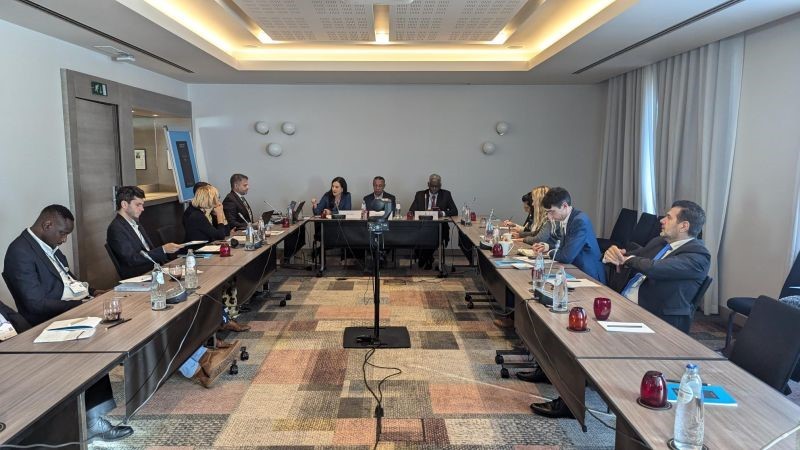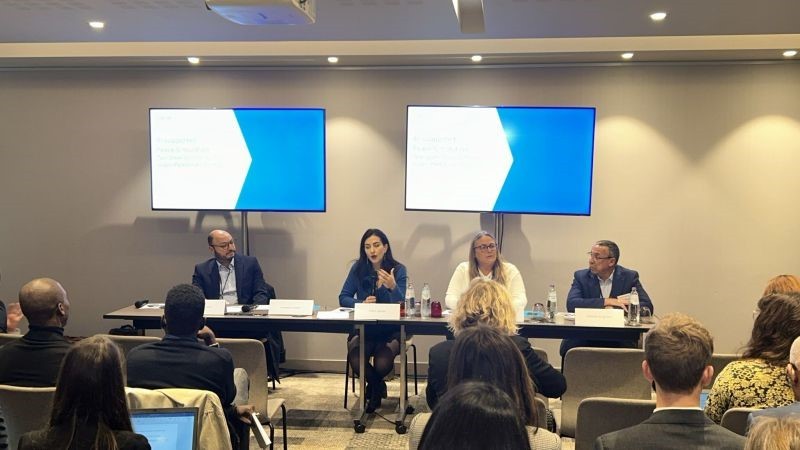Brussels, 25 October 2024
2024 EU Community of Practice on Peace Mediation
At Principles for Peace, we organized a peacegame simulation on the Israel-Palestine two-state solution, bringing together stakeholders from the EU and CoP participants to explore feasible solutions.

As war rages around us and human suffering is on all fronts, it can be difficult to prioritize conferences and workshops. But the EU Community of Practice on Peace Mediation was worth it.
At Principles for Peace, we organized a peacegame simulation on the Israel-Palestine two-state solution, bringing together stakeholders from the EU and CoP participants to explore feasible solutions. Participants stepped into critical regional and international roles, highlighting the influence of regional actors. Timely in the wake of the Global Alliance for Two States Solution meetings, the simulation underscored those solutions, while complex, are achievable through pressure, incentives, blocking annexation, and proactively building support for political solution within a regional framework—particularly urgent amid the ongoing human toll and insecurity in the region. With our partners at CRISP – Crisis Simulation for Peace e. V., we utilized our AI model, which condensed insights from over 170 peace plans and research studies, to help participants navigate the feasibility of breaking through the current political deadlock.
Principles for Peace Executive Director Hiba Qasas also had the privilege of moderating a cross-regional panel, Amplifying Every Voice: Inclusive Partnerships for Lasting Peace, featuring key P4P partners from Somalia, the Philippines, and Palestine. Together with panellists Dr. Abdirahman Abdullahi Baadiyow (Somalia), Teresita Quintos Deles (Philippines), and Ashraf al-Ajrami (Palestine), we explored how inclusive partnerships, accountable governance, and security-driven dialogue are vital to building legitimacy in peace processes. The insights on local leadership and civil society engagement were both powerful and inspiring.
Key takeaways included:
Philippines: Ten years after the comprehensive peace agreement, the work is not yet done. P4P’s Participatory Periodic Review for Peace places community voices at the core of peace efforts.
Somalia: The National Reconciliation Framework, which adopts the Principles for Peace as a benchmark for progress, along with our participatory methodology, is strengthening trust and institutional accountability.
Palestine: Amidst the current crisis, with immense human suffering, supporting intra-Palestinian efforts to increase legitimacy, inclusion, and public trust in institutions.
Thank you to the EU team Guillem Riutord Sampol, Martin Albani, Katja-Maaret Niemi for their important efforts to advance peace mediation in these difficult times, to Frederic Ceuppens, for so capably playing the role of an exceptional mediator in the simulation., to our resource persons and partners of Principles for Peace initiative Uniting for a Shared Future (USF) Dr. Gil Murciano and A Land for All (ALFA), Our peacegaming partner CRISP, and my wonderful team and colleagues at P4P.

